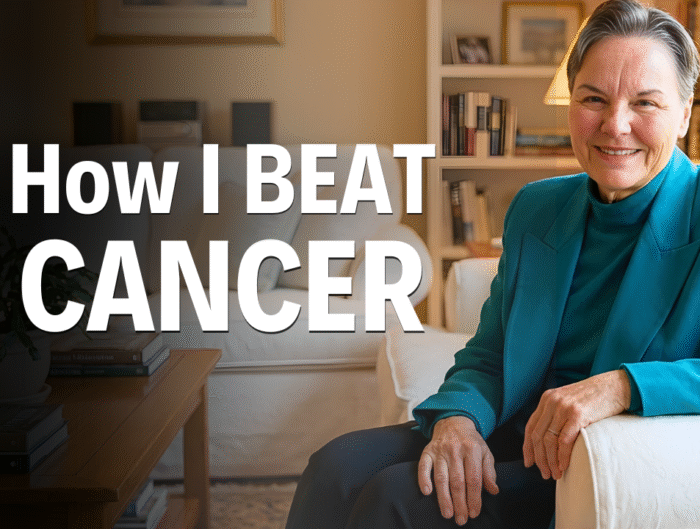We’ve learned before that cosmetics and personal care products are like food for our bodies. Yes, we actually eat these products through our skin as their ingredients circulate throughout our bodies. This is why we want to be just as conscientious about what we put on our skin as what we put in our mouths.
Research published in the American Journal of Public Health examined the skin’s absorption rates of chemicals in drinking water. Their results showed that skin absorption contributed 29-91 percent of the total dose, averaging 64 percent.
Another study stated, “Substances applied to the skin surface may permeate deeper tissue layers and pass in the body’s systemic circulation by entering blood or lymphatic vessels in the dermis.” This same study found the face, underarms, and genitalia to have higher absorption rates than other body surfaces.
Considering these rates of absorption of the skin, it’s important that we wisely consider what we lather up on our skin. Here are six ingredients we should be cautious about putting on our skin:
- Parabens
Parabens are an inexpensive preservative used in many personal care products to prevent bacterial growth and increase the shelf life. Unfortunately, they are known as endocrine disruptors that can affect the hormonal health of both men and women, contribute to fertility problems, and increase risk of cancer. There are different forms of parabens including butylparaben, propylparaben, and methylparaben.
- Fragrance
I’ve learned that “fragrance” is just another word for a concoction of chemicals. We don’t want this in our laundry detergent as we discussed before, or in what we put on our skin. I strongly prefer that my fragrances come from natural essential oils, herbs, and flowers.
- Sulfates
The two most commonly used are Sodium Lauryl Sulfate and Sodium Laureth Sulfate. Sulfates are used to create foam and lather. In addition, these foaming agents decrease healthy oils on your skin and tend to cause skin irritation.
- 1,4 Dioxane.
You may not see this listed in ingredients because it’s a byproduct. The EPA calls 1,4 dioxane a likely carcinogen that can also cause skin irritation, respiratory issues, and liver and kidney damage. When you buy USDA Certified Organic Products, they usually don’t contain this product.
- Triclosan and Antibacterial Chemicals.
This is an antibacterial chemical that has been linked to cancer, hormonal disruption, and allergies. In addition, the overuse of antibacterial soaps has contributed to antibiotic resistance. We just need plain soap and water to break down the germs that get on our hands. How many of you relied on antibacterial soaps all during Covid? I only used them when there was no way to wash my hands. Triclosan is now banned in soaps while still being allowed in some products, but other antibacterials have not been banned. These include benzalkonium chloride, benzethonium chloride, and chloroxylenol. So be careful. https://www
- Phthalates
These chemicals are used in products to make them more liquid. They are commonly found in cosmetics and are known for causing many issues such as reproductive dysfunction, diabetes, asthma, and even ADHD. Look for names such as DBP (dibutyl phthalate) DEP (diethyl phthalate), BBP (benzyl butyl phthalate), etc.
Now you know why I’ve switched out my personal care products to ones that are mainly organic and contain natural products. Yes, some of these chemicals were found in my body at high levels. Seeing those test results made me do a lot of research that I’m now passing on to you!
Have many of you have noticed some of these ingredients on the labels of your skin care products? What products do you use that don’t contain these ingredients?
View this message on YouTube:
Six Ingredients You Don’t Want in Your Skincare Products
And here’s a related video:
Six Facts About Your Skin You Must Know
For Your Health,
Ginny
 Ginny Dent Brant is a speaker and writer who grew up in the halls of power in Washington, DC. She has battled cancer, ministered around the world, and served on the front lines of American culture as a counselor, educator, wellness advocate, and adjunct professor. Brant’s award-winning book, Finding True Freedom: From the White House to the World, was endorsed by Chuck Colson and featured in many TV and media interviews. Unleash Your God-Given Healing: Eight Steps to Prevent and Survive Cancer was released in May 2020 after her journey with cancer and was recently awarded the First Place Golden Scrolls Award for Memoirs, and Second Place in both Selah Awards for Memoirs and Director’s Choice Award for Nonfiction at the Blue Ridge Mountain Christian Writer’s Conference. It recently received the Christian Authors Network’s (CAN) Gold Award for Excellence in Marketing for reaching 62.5 million people with a message of cancer prevention and survival. It was written with commentary from an oncologist and was featured on CBN’s Healthy Living Show, Atlanta Live, and CTN’s Homekeepers along with over 75 media outlets. Learn more and cancer and wellness prevention blog and book information at www.ginnybrant.com.
Ginny Dent Brant is a speaker and writer who grew up in the halls of power in Washington, DC. She has battled cancer, ministered around the world, and served on the front lines of American culture as a counselor, educator, wellness advocate, and adjunct professor. Brant’s award-winning book, Finding True Freedom: From the White House to the World, was endorsed by Chuck Colson and featured in many TV and media interviews. Unleash Your God-Given Healing: Eight Steps to Prevent and Survive Cancer was released in May 2020 after her journey with cancer and was recently awarded the First Place Golden Scrolls Award for Memoirs, and Second Place in both Selah Awards for Memoirs and Director’s Choice Award for Nonfiction at the Blue Ridge Mountain Christian Writer’s Conference. It recently received the Christian Authors Network’s (CAN) Gold Award for Excellence in Marketing for reaching 62.5 million people with a message of cancer prevention and survival. It was written with commentary from an oncologist and was featured on CBN’s Healthy Living Show, Atlanta Live, and CTN’s Homekeepers along with over 75 media outlets. Learn more and cancer and wellness prevention blog and book information at www.ginnybrant.com.




